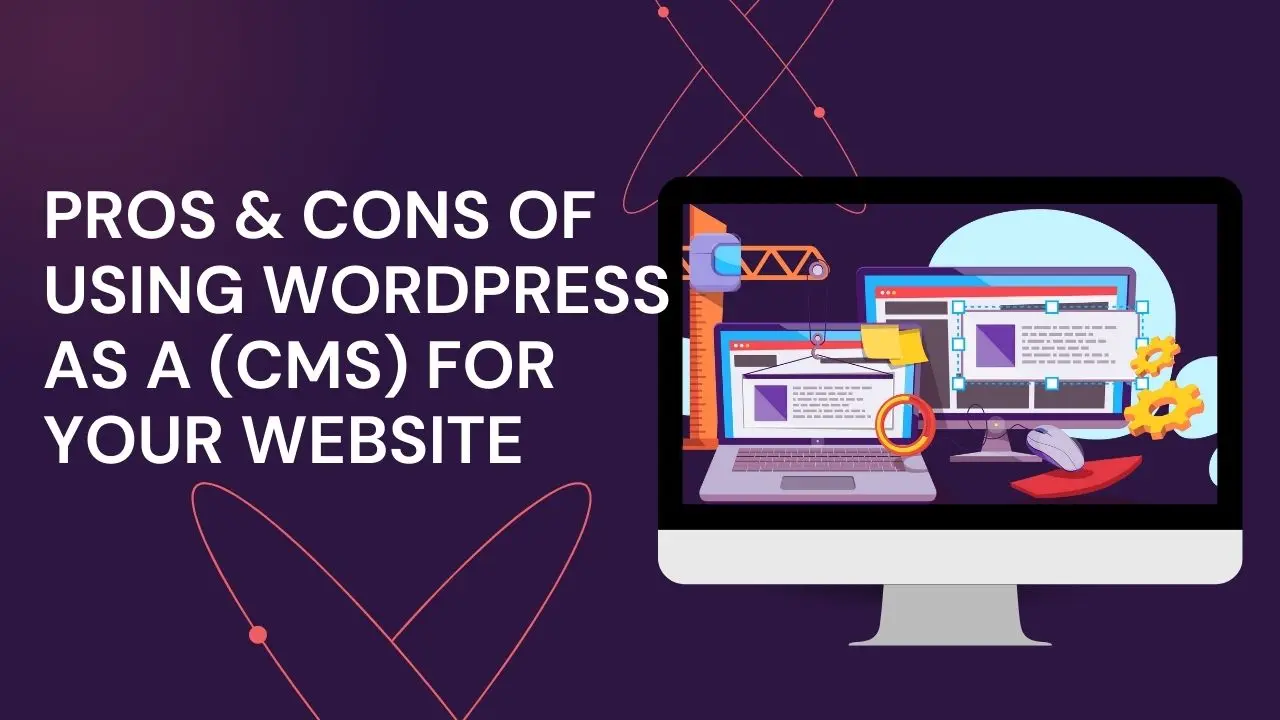

WordPress is one of the most popular content management systems (CMS) available today, and for good reason.
It is user-friendly, highly customizable, and offers a wide range of features and plugins to help you create and manage your website.
But, like any CMS, it also has its own set of pros and cons. In this article, we will explore the advantages and disadvantages of using WordPress as your website’s CMS.
Pros of Using WordPress as a CMS:
- It’s free and open-source: WordPress is a free and open-source CMS, which means that it is available to anyone to use and modify as they see fit.
- User-friendly: WordPress is designed to be easy to use, even for those with little to no coding experience.
- Highly customizable: With a wide variety of themes and plugins available, you can easily customize the look and functionality of your website.
- SEO-friendly: WordPress is optimized for search engines, making it easier for your website to achieve a higher ranking in search results.
- Easy to update: WordPress makes it easy to add, edit, or delete content on your website, without the need for any coding knowledge.
- Responsive design: WordPress themes and templates are designed to be fully responsive, meaning your website will look great on any device.
- Large community: WordPress has a large community of users and developers, which means that there is a wealth of knowledge and resources available for those who need help or support.
- Plugins and widgets: WordPress offers a wide range of plugins and widgets that can be easily added to your website to extend its functionality.
- E-commerce ready: You can easily add e-commerce functionality to your website using WordPress with the help of WooCommerce plugin.
- Easy to back up: WordPress allows you to easily back up your website, so you can restore it in case of any issues.
Cons of Using WordPress as a CMS:
- Security risks: WordPress is a widely-used CMS, which means that it is also a popular target for hackers.
- Limited control over the code: WordPress is a pre-built platform, which means that you have limited control over the code that runs your website.
- Slow performance: If your website is not optimized for performance, it may run slow and affect user experience.
- Limited design options: While WordPress offers a wide range of themes and templates, they may not be suitable for all types of websites and businesses.
- Dependence on plugins: Some features and functionalities of your website may rely on third-party plugins, which can be a security risk if not updated regularly.
- Limited scalability: WordPress may not be suitable for large and complex websites, as it may not be able to handle a large volume of traffic or data.
- Limited integration options: WordPress may not be able to integrate with all types of software and systems.
- Limited support: While the WordPress community is large, it may not be able to provide support for all types of issues and problems.
- Limited customization options: While you can customize your website to some extent, you may not be able to make more advanced customizations without coding knowledge.
- May require technical expertise: While WordPress is designed to be user-friendly, you may still need some technical expertise to set up, manage, and optimize your website.
Overall, WordPress is a powerful and user-friendly CMS that can help you create and manage your website easily. However, it also has its own set of pros and cons. It is important to weigh the advantages and disadvantages of using WordPress before deciding if it is the right choice for your needs.
If you are looking for a free and easy to use CMS, with a wide range of customization options and a large community of users, then WordPress is the perfect choice for you. However, if you are running a large and complex website, or require more advanced customization options, you may want to consider other CMS options.
Ultimately, the decision of whether to use WordPress or not will depend on your specific needs and goals for your website. It’s important to research and compare different CMS options before making a final decision.


